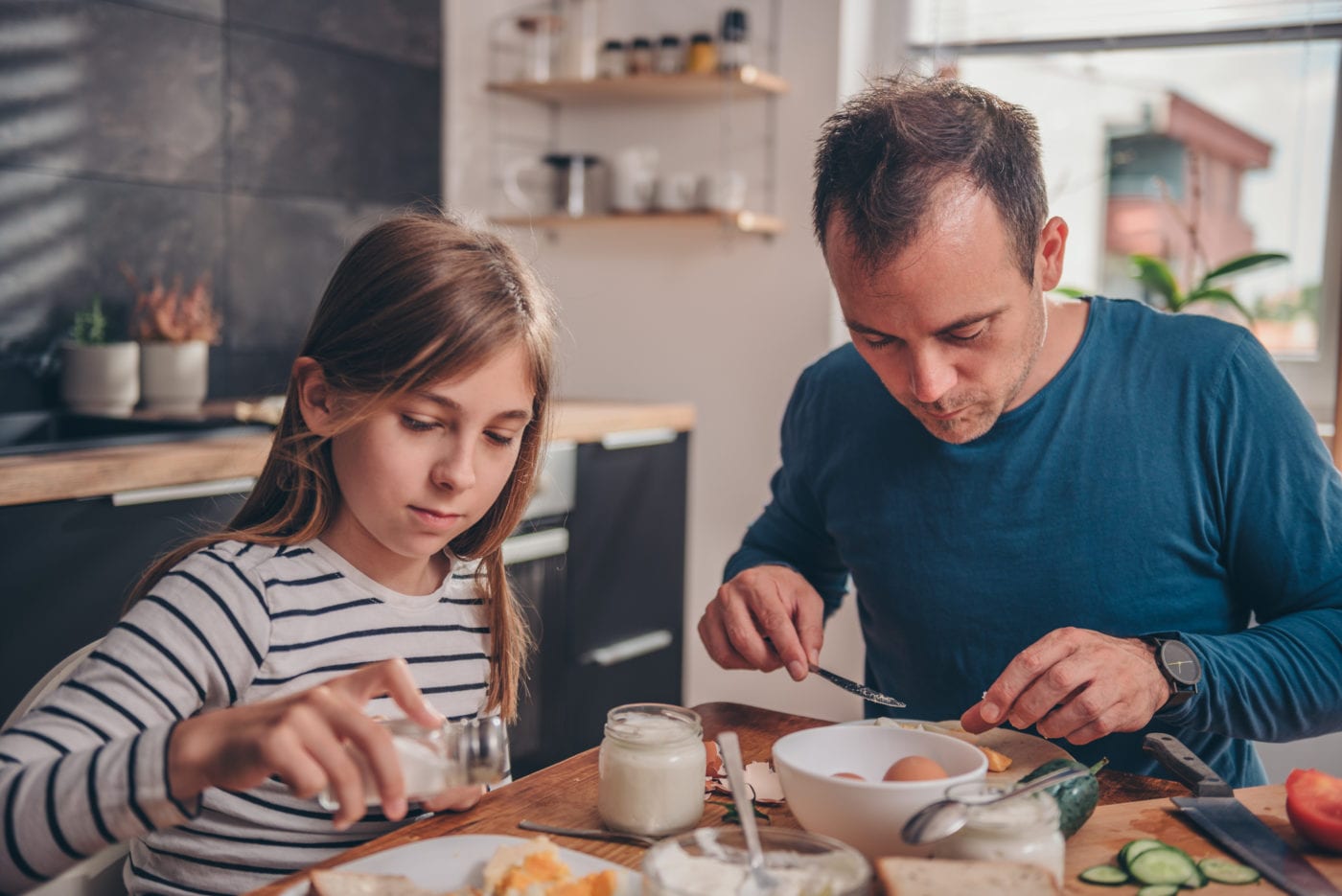What started off as a simple conversation with our son about his dissecting a (pregnant) shark at school abruptly switched to “I didn’t know babies were made like that. I thought the baby was just in the mom’s stomach and didn’t come until she got married.”
So a conversation our son had with my wife about shark babies became in five seconds a conversation about how human babies are made. Having difficult conversations like these is not easy, but it’s necessary. I realized at that moment there may be a conversation or two that we need to have with our son very soon. Here are 15 conversations you must have.
1. Girls vs. Boys (The Opposite Sex)
From the “cooties” stage to the dating age, our kids need to hear from us about the opposite sex. What makes us different, why, and how do we relate to one another?
2. Sex
Did that just make you feel a certain way? I know it made my wife feel a certain way when my son’s questions went deeper and deeper. Sex is not bad, at least not when done in the right context and covering: marriage. Don’t fear this talk, and don’t just make it a one-time thing.
3. Modesty
Does modesty exist in today’s society? A few minutes watching TV or surfing the web will have you doubting it does. But it does, and you can play a part in this for your children. And modesty isn’t just for girls. Teach both your sons and daughters a proper view of self.
4. Chivalry
It shows and fosters respect, admiration, and appreciation. Chivalry is not dead, but unfortunately it may be on life support. You play an important role in keeping it alive in the next generation of your family. Model it, talk about it, and make it important to your kids.
5. Selflessness
Talking to your kids about being selfless will help them care for others well. People who care for others well tend to have healthy relationships.
6. The Long-Term Impact of Relationships
In high school (and junior high for some) kids jump in and out of “relationships.” It seems they think once one is over, then no big deal. But each relationship has a long-term impact and also experiences that aren’t as easily detached from. Talk to them about the impact all their relationships will have, and do it before, not after, they experience heartbreak.
7. Intimacy and Chemistry
When our kids become physically intimate, something happens. A bond, emotionally and psychologically, is created, and if that bond is not with their spouse, it’s not a good thing. Later in life, this bond can impact the bond they are to have with the one they are supposed to bond with—their spouse.
8. Unity
My wife and I teach couples how to have shared goals and a vision for their marriage all set on a strong foundation. If the goals, the vision, the foundation aren’t rooted in the same thing, if they aren’t unified, challenges can occur. Talk to them about what can happen when unity is present. One verse illustrates this in a great way: “A person standing alone can be attacked and defeated, but two can stand back-to-back and conquer.”
9. Accountability
Without accountability, our kids can be reckless. This boils down to their character and what they do when no one is watching. Talk to them about how this will impact every area of their lives.
10. Social Media
Know enough to be able to discuss and provide guidance on all usage. Social media has taken the lives of many kids—not just in their attention and time, but their lives literally as suicide and bullying rates skyrocket.
11. Pornography
This is one of the most addictive and destructive things. John Van Arnam from The Third Talk speaks to teens in schools about pornography. He said that he hears teens all the time say that adults won’t talk to them about pornography and its dangers. Having difficult conversations like this is essential. Don’t ignore this. And if you struggle with it, then get help for you and help for you to talk to your kids about it.
12. Peer Pressure and Temptation
I coach youth sports, and as a coach, I try my best to prepare my team for what they may encounter and what to do when they encounter it. We need to do the same for our kids. Talk to them about peer pressure and temptation and even teach them what to say or do when (not if) they face it.
13. Abuse
It’ll surprise you how many adults you know who have been abused in some way as a child or even as an adult. Some never told anybody. That’s why having difficult conversations like this is vital. Talk to your kids about abuse (of all types), and open the communications lines so they’ll freely talk about any abusive situation they may find themselves in or witness.
14. A Good Marriage
Years ago, my wife and I were asked, “Would your kids want to get married based on what they see every day in your marriage?” It stopped us in our tracks and forced us to make some changes. Talk to your kids about marriage, including yours to give them real life examples of what it’s about.
15. Preparing for Marriage
Everything your kids do now in relationships is impacting their marriage relationship. Don’t wait until they come home with a ring. Start the dialogue in advance and guide them to become the spouse they want.
We have to talk to our kids about tough topics. Hopefully, what I’ve shared above will encourage and equip you to do so. For more questions to start various conversations with your kids, download the Q & U app.
The 15 points in this post were used or adapted from “The Talks” by Barrett Johnson with the author’s permission.
Sound off: How are you at having difficult conversations with your kids? Are there any missing from this list?











Huddle up with your kids and ask, “What kinds of conversations are the hardest for you to have?”